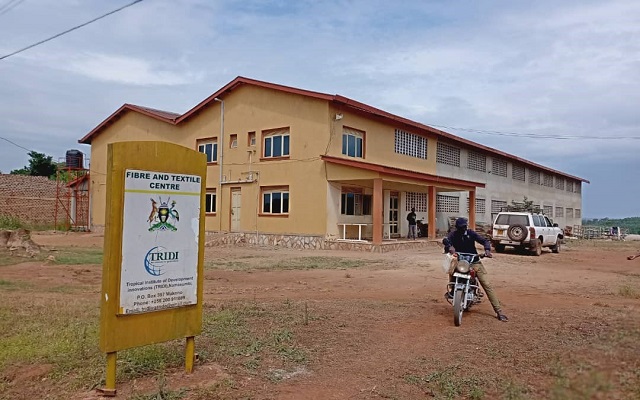
COMMENT | ROBSON AINE | In a startling revelation, the Tropical Institute for Development Innovation (TRIDI) has pointed fingers at the Ministry of Science, Technology, and Innovation for obstructing the progress of the TRIDI Sericulture project, leading to economic losses and wastage of investments. The project, aimed at revolutionizing Uganda’s silk industry, has seen significant setbacks due to the Ministry’s alleged failure to fulfil its obligations as outlined in the Memorandum of Understanding (MOU).
The Parliamentary Committee on Science, Technology, and Innovations (STI) recently presented a report highlighting the challenges faced by the sericulture project under TRIDI’s management. While the committee’s work was acknowledged, TRIDI is concerned about media reports that it believes have twisted facts and misled the public. To set the record straight, TRIDI has issued a detailed statement to clarify key issues surrounding the project.
One notable achievement of the project is the successful production of a 100% Ugandan silk yarn brand called “Usilk.” This brand has gained acceptance in both European and Asian markets. However, TRIDI asserts that the Ministry of Science disrupted the project’s initial plan, preventing it from producing sufficient raw materials to meet market demand.
Parliament had allocated UGX43 billion for the project in the 2022/2023 fiscal year to facilitate the production of raw materials, install silkworm egg production facilities, and provide training for Ugandans in silk yarn production. However, the Ministry chose to suspend the release of these funds, a move TRIDI claims is in violation of the Public Finance Management Act of 2015. This suspension has resulted in the wastage of investments exceeding UGX85 billion.
The TRIDI Sericulture project, at the time of the MOU breach by the Ministry of Science, had provided employment to over 1,500 Ugandans. It was operating in 24 districts and had established mulberry gardens, research centres, and silk factories across the country. The project had also procured land for future expansion and invested in modern equipment for silk production.
TRIDI emphasizes that the blame for the wastage of investments rests solely on the Ministry of Science and its alleged allies, who it claims aimed to discredit the project and its scientists. Despite being only 6% funded, the project had reached an 8% implementation rate, demonstrating its commitment to its objectives.
The project originated from financial support by President Yoweri Kaguta Museveni through the Innovation Fund, marking it as the first of 17 innovation fund projects to produce a commercial product. “Usilk” is the first commercial product to emerge from this initiative and is the only project among the 17 to have successfully entered European and Asian markets.
The sericulture project involves a comprehensive process that begins with cultivating mulberry plants and feeding their leaves to silkworms. The resulting cocoons are harvested to extract silk thread, which is then used to create silk yarn. TRIDI proudly states that all these processes take place within Uganda, with the potential for more products on the horizon.
TRIDI’s ambitious plan involves expanding the project to 50 districts, a move that could yield substantial economic benefits for Uganda. At full commercialization, the project is expected to have an investment value of UGX800 billion and generate approximately UGX50 billion in annual taxes for the government. Moreover, it has the potential to create 300,000 jobs, contributing an additional UGX300 billion to the economy annually.
The TRIDI Sericulture project insists that its assets are managed in accordance with the provisions of the MOU and that the government should fulfill its obligations. It questions the Ministry’s decision to scale down the project to just two districts, despite parliamentary appropriations for work in 24 districts. TRIDI remains committed to its objectives, including the creation of gainful employment across the nation, and aims to leverage the advantages offered by different agroecological regions in Uganda.
As the debate intensifies, the TRIDI Sericulture project serves as a symbol of both innovation and perseverance, hoping to revitalize Uganda’s silk industry and contribute significantly to the nation’s economic growth. The project’s future remains uncertain, pending further clarification and resolution of the issues raised.
******
Robson Aine – Director Monitoring and Evaluation Tropical Institute of Development Innovations (TRIDI)
 The Independent Uganda: You get the Truth we Pay the Price
The Independent Uganda: You get the Truth we Pay the Price



